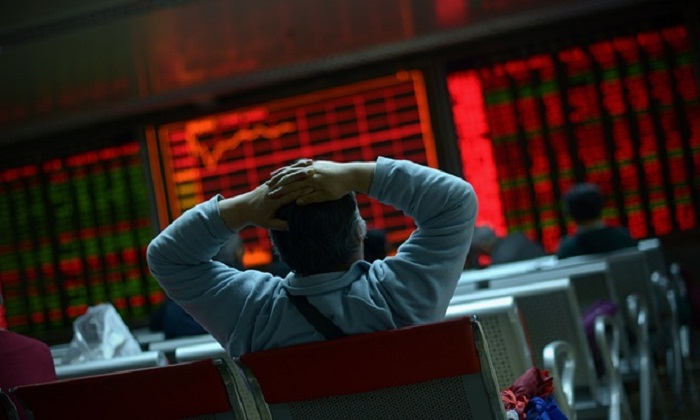The declines came on the heels of a second consecutive day of lower oil prices as traders continued erasing a recent surge from speculation that the world’s major exporters would cooperate on output cuts. New York-traded crude oil fell 5.5% to $29.88 a barrel, taking its two-day loss to 11%.
A steep drop in quarterly profit from both Exxon Mobil and BP showed that even the sector’s most resilient firms are struggling in an environment of sharply lower oil prices.
Adding to the pain for the energy sector was a wave of credit downgrades by ratings firm Standard & Poor’s, which said the steep fall in oil prices could curtail energy companies’ outlook for years.
“It’s a broad-based risk reduction,” said Larry Weiss, head of trading at Instinet, in describing Tuesday’s moves.
The yield on the benchmark 10-year Treasury note fell to 1.864%, its lowest level since April, from 1.966% Monday, as investors sought safety. Bond prices rise as yields fall.
Utilities shares in the S&P 500 rose 0.4%, the only major sector to gain Tuesday. High-dividend-paying stocks such as utilities are often a draw for investors as bond yields fall.
The moves mark this year’s latest slide for U.S. stocks, which have been pummeled by diminishing expectations for global growth and the deep slide in oil prices, which has hurt energy companies but hasn’t translated into a big uptick in consumer spending.
The S&P 500 is down 6.9% this year; the Dow is down 7.3%.
Exxon Mobil reported its lowest quarterly profit since 2002 and said it would suspend its stock-buyback program, sending shares of the Dow component falling $1.70, or 2.2%, to $74.59.
U.K. oil giant BP’s sharp quarterly loss sent its shares down 8.7% in London.
Chevron fell 4.05, or 4.8%, to 81.24. Standard & Poor’s downgraded its corporate credit rating, along with the ratings on 19 other oil and gas companies.
The S&P 500 fell 36.35 points, or 1.9%, to 1903.03, while the Nasdaq Composite lost 103.42, or 2.2%, to 4516.95.
Despite a strong rally late last week, “all of the same issues that brought the [stock] market down in the beginning of the year are still in play,” said Bill Nichols, head of U.S. equities at Cantor Fitzgerald.
Elsewhere, shares of cruise-line operators fell sharply after Royal Caribbean Cruises issued 2016 and first-quarter guidance below expectations. Investors bid up cruise-line stocks last year on expectations that low energy prices would translate into more-robust vacation spending by consumers. But Royal Caribbean said the stronger U.S. dollar and higher expenses for its China expansion weighed on its results. Its shares fell 12.82, or 15%, to 71.70.
Alphabet late Monday reported a surge in profitability at its main Google Internet businesses last year. Its shares rose 10.14, or 1.3%, to 780.91, surpassing Apple to become the largest company by market capitalization in the S&P 500.
Yahoo fell 51 cents, or 1.7%, to 29.06. It reported a quarterly loss of $4.4 billion after the close Tuesday and said it plans to eliminate roughly 15% of its workforce and explore the sale of nonstrategic assets. Its shares fell another 2.6% in after-hours trading.
The Stoxx Europe 600 lost 2.1%, with losses concentrated in the energy and banking sectors. UBS Group reported a fall in fourth-quarter net profit; its shares fell 6.8% in Switzerland.
“People are nervous about global growth,” said Stephen Macklow-Smith, head of European equities strategy at J.P. Morgan Asset Management, noting many of the emerging markets that have struggled this year are also large producers of raw materials.
Stocks in Asia ended mostly lower. Japan’s Nikkei Stock Average fell 0.6% Tuesday, while the commodity-heavy S&P ASX 200 fell 1% after the Reserve Bank of Australia held interest rates steady as expected.
The Shanghai Composite Index, however, climbed 2.3% after China’s central bank injected more liquidity into the financial system ahead of the weeklong Lunar New Year holiday.
Gold prices fell 0.1% to $1,127.30 an ounce.
More about:















































